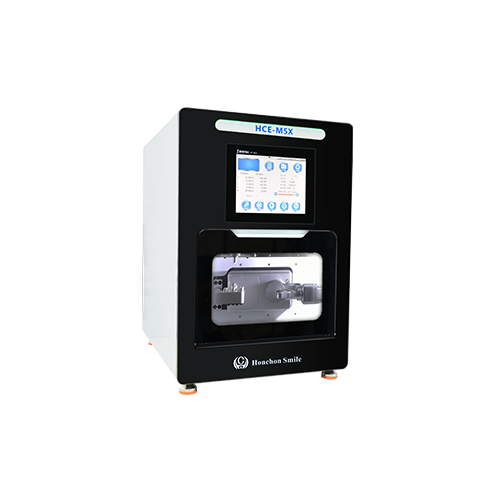Digital dentistry has entered a new era where accuracy, speed, and efficiency are no longer luxuries but necessities. At the center of this transformation are CAD/CAM milling machines, which empower dental labs and clinics to fabricate restorations with unmatched precision.
Unlike traditional methods that rely heavily on manual craftsmanship, CAD/CAM milling integrates computer-aided design (CAD) with computer-aided manufacturing (CAM) to produce crowns, bridges, dentures, implants, and orthodontic appliances faster and more reliably.
In this article, we’ll not only highlight the best CAD/CAM milling machines but also provide a practical guide for dental labs and clinicians on how to choose the right machine for their workflow.
Precision & Consistency – Achieve restorations that fit seamlessly with minimal adjustments.
Material Flexibility – Mill zirconia, PMMA, wax, resin, glass ceramics, and titanium.
Workflow Automation – Reduce manual intervention with automatic tool changers and disc loaders.
Time & Cost Efficiency – Shorten turnaround times while lowering remakes and waste.
Scalability – Whether for a small clinic or a large lab, machines adapt to different production needs.
When selecting a machine, consider:
Axis Control (3+1, 4, or 5-Axis): 5-axis offers maximum flexibility for complex cases.
Dry vs. Wet Milling: Wet milling is ideal for glass ceramics and composites; dry milling excels in zirconia and PMMA.
Automation Features: Automatic tool changers, disc changers, and material recognition improve efficiency.
Software Ecosystem: Integration with open or closed CAD systems affects compatibility.
Durability & Maintenance: Reliable machines reduce downtime and long-term costs.
Support & Training: Strong after-sales support ensures smooth adoption.
Here’s a ranked list of machines trusted by professionals worldwide:
Why It Stands Out: High-performance powerhouse, perfect for labs handling large volumes.
Key Features:
5-axis wet and dry milling
Automatic material management system
Handles zirconia, glass ceramics, PMMA, and composites
Fastest in its category
Why It Stands Out: True hybrid flexibility with modular design.
Key Features:
Wet & dry milling in one unit
5-axis simultaneous milling for complex cases
Precision grinding mode for glass ceramics
Perfect for labs that need versatility
Why It Stands Out: Automated production with minimal supervision.
Key Features:
5-axis milling with 24-hour unattended operation
Automatic disc changer (6 discs)
15-tool automatic changer
Dust collection system for clean operation
Why It Stands Out: Compact yet powerful, excellent automation.
Key Features:
5-axis dry and wet milling
10-disc changer for continuous operation
High-speed spindle for fast throughput
Perfect for busy labs optimizing productivity
Why It Stands Out: Robust and user-friendly, designed for labs of all sizes.
Key Features:
5-axis wet/dry milling
Compatible with zirconia, PMMA, titanium, and glass ceramics
Intuitive inLab software integration
Reliable for long-term heavy use
Why It Stands Out: Specialized in wet milling for premium aesthetics.
Key Features:
Ideal for lithium disilicate and composite resins
Smooth surface finish, natural translucency
Affordable option for clinics focusing on chairside solutions
Why It Stands Out: German-engineered precision for hybrid workflows.
Key Features:
Wet & dry milling in one unit
High accuracy with stable construction
Advanced CAM software support
Excellent for complex prosthetic designs
Why It Stands Out: Cost-effective yet versatile option.
Key Features:
5-axis capability for complex restorations
Supports zirconia, PMMA, wax, and ceramics
Automatic tool changer for efficiency
Good choice for labs seeking balance between price and performance

Dry Milling: Best for zirconia, PMMA, and wax. Produces dust, needs suction.
Wet Milling: Best for glass ceramics, hybrid composites, titanium. Produces smoother surfaces.
Hybrid Machines: Offer both options, giving maximum flexibility.
Perfect Fit Restorations – Reduces chair time and adjustments.
Faster Delivery – Same-day crowns possible with chairside milling.
Better Aesthetics – Accurate layering and translucency mimic natural teeth.
Durability – Stronger restorations due to precision machining.
AI-Driven CAM Software: Automated nesting and tool path optimization.
Smaller Chairside Units: Increasing adoption in clinics, not just labs.
Eco-Friendly Milling: Energy-efficient spindles and reduced material waste.
Integration with 3D Printing: Hybrid workflows combining additive and subtractive manufacturing.
CAD/CAM milling machines are no longer optional—they’re essential for any dental practice or lab aiming to stay competitive. From small clinics offering same-day crowns to large labs producing hundreds of units daily, there’s a machine tailored for every need.
When choosing, balance precision, automation, and versatility with your workflow requirements. Machines like the Ivoclar PM7 or Ceramill Motion 3 lead the market, but affordable solutions like DGSHAPE DWX-53DC and HONCHON EM5X make digital dentistry accessible to all.
Tip for Dental Labs: Always consider future scalability. A machine that serves your current needs and supports your growth will yield the best ROI.